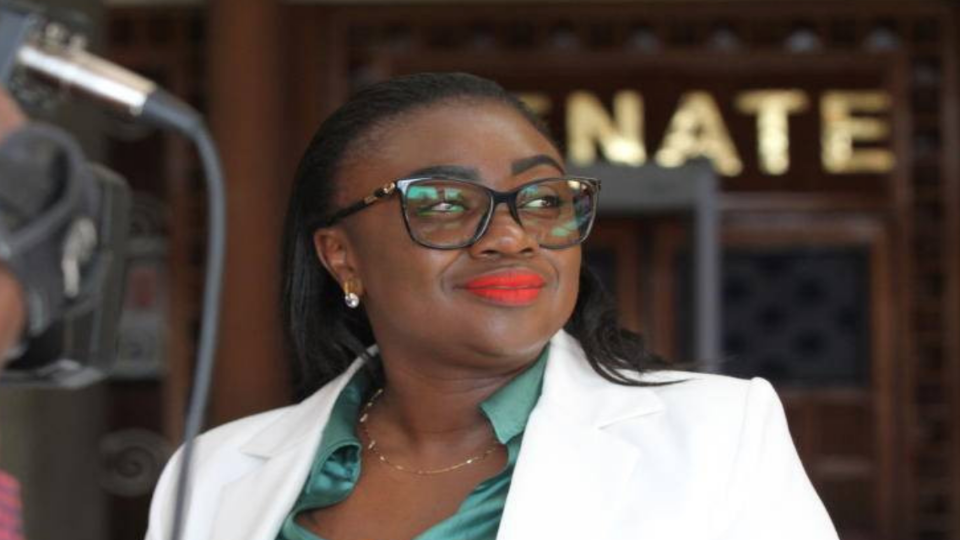Tribunal Overturns Gloria Orwoba’s Expulsion from UDA, Orders Reinstatement
The Political Parties Disputes Tribunal (PPDT) has declared the expulsion of former Nominated Senator Gloria Orwoba from the United Democratic Alliance (UDA) unlawful, ordering the party to reverse all actions taken to remove her from its membership. The tribunal, chaired by Desma Nungo and including members Theresa Chepkwony and Abdirahman Adan Abdikadir, found that the disciplinary process leading to Orwoba’s ouster was riddled with procedural irregularities and violated principles of natural justice, effectively reinstating her as a UDA member. This decision marks a dramatic turn in a months-long saga of internal party disputes, legal battles, and political maneuvering, though it is complicated by the recent swearing-in of Orwoba’s replacement, Consolata Nabwire Wakwabubi, in the Senate.
The controversy began when UDA expelled Orwoba on May 19, 2025, citing alleged disloyalty and misconduct. The party’s disciplinary committee, chaired by Charles Njenga, accused her of actions that violated the UDA Constitution, specifically pointing to her attendance at the homecoming ceremony of former Interior Cabinet Secretary Fred Matiang’i on May 2, 2025, and her public criticism of President William Ruto’s labour mobility programme during an April 22, 2025, radio interview on Spice FM. UDA Secretary General Hassan Omar announced that the National Executive Committee (NEC) had ratified the disciplinary committee’s recommendation, stating that Orwoba’s actions were incompatible with the party’s values and damaged its image. The party promptly notified Senate Speaker Amason Kingi and the Registrar of Political Parties, initiating Orwoba’s removal as a nominated senator and nominating Consolata Nabwire Wakwabubi as her replacement, in line with the party’s pre-election list submitted to the Independent Electoral and Boundaries Commission (IEBC) before the 2022 General Election.
Orwoba challenged her expulsion, arguing that the disciplinary process was unfair and politically motivated. She claimed she was denied a fair hearing, as the UDA disciplinary committee proceeded despite a High Court interim order on May 15, 2025, suspending the process. Orwoba provided an audio recording as evidence, in which committee members appeared to acknowledge the court order, yet the party announced her expulsion publicly. The tribunal pink, arguing “[t]he respondent failed to produce a copy of the proceedings, so the only record is the audio and transcription, which shows that the disciplinary hearing had been suspended due to an interim court order.” The tribunal noted that UDA relied on unsigned and undated documents, further undermining the legitimacy of the process.
The PPDT’s ruling described the disciplinary proceedings as a “political process masquerading as a legal one,” emphasizing that Orwoba was not given sufficient opportunity to prepare her defense or access the committee’s ruling to appeal it. “It is clear that the proceedings of the disciplinary committee were calculated to achieve a politically motivated expulsion,” said Chairperson Nungo, declaring the expulsion null and void. The tribunal barred the Registrar of Political Parties from removing Orwoba’s name from the UDA register and ordered the party to reverse all steps taken to enforce her expulsion.
However, the situation remains complex due to subsequent developments. On August 15, 2025, the IEBC gazetted Consolata Nabwire Wakwabubi as Orwoba’s replacement for the UDA women’s nominated Senate seat, and she was sworn in on August 20, 2025, in a ceremony presided over by Senate Speaker Amason Kingi, just hours before the tribunal’s ruling. Orwoba has since petitioned the High Court to challenge Wakwabubi’s nomination, calling it unconstitutional and alleging that the IEBC, Senate, and its officials were aware of the pending tribunal ruling but proceeded with the swearing-in. She further claimed to have received threats to accept her expulsion and step aside quietly, stating, “I have received several communications warning me to shut up and let it go. This communication is targeted to threaten me and my family.”
Orwoba’s legal battles have not been without setbacks. On August 13, 2025, Justice Lawrence Mugambi dismissed her High Court petition challenging the UDA disciplinary process, ruling that she had engaged in “forum shopping” by simultaneously pursuing remedies at both the High Court and the PPDT. The judge emphasized that internal party disputes should first be resolved through the tribunal, as mandated by the Political Parties Act, and ordered Orwoba to pay UDA’s legal costs. Earlier, on May 20, 2025, another High Court ruling dismissed her application to stop her expulsion due to procedural errors, such as introducing new parties without court permission to amend her petition. Despite these setbacks, the tribunal’s August 20 ruling represents a significant victory for Orwoba, though it raises questions about the legal and procedural implications for Wakwabubi’s Senate appointment.
The tribunal’s decision has sparked debate about political party discipline and fairness in Kenya. Orwoba’s supporters, including Githunguri MP Gathoni Wamuchomba, who protested her own suspension from UDA, argue that the ruling exposes flaws in party disciplinary processes. Critics of UDA’s actions suggest that Orwoba’s expulsion was an attempt to silence dissent, particularly given her vocal stance on issues like femicide and her perceived alignment with political figures like Matiang’i. The ongoing High Court case challenging Wakwabubi’s nomination is expected to clarify the status of Orwoba’s Senate seat, with a hearing pending to determine whether her reinstatement as a UDA member restores her position as a nominated senator.
This ruling underscores the complexities of political party dynamics in Kenya, where internal disputes often escalate into legal battles, highlighting tensions between party loyalty and individual rights. As the case unfolds, it remains a focal point for discussions on due process, political motivations, and the role of judicial oversight in party governance.


